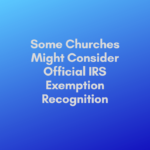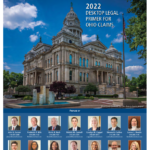
Congratulations to the twelve attorneys in Weston Hurd’s Columbus office named Best Lawyers 2022 by Columbus CEO magazine. The attorneys were selected through a multiphase process that combines a peer review survey, nominations of lawyers considered to be the best in their field of practice, and a screening and verification process to create a comprehensive listing of outstanding attorneys. […]
Posted on
June 22, 2022
in
Estate, Trust & Probate,
News

In a recent decision in the Court of Appeals of Ohio, Tenth Appellate District, the court affirmed the decision by the Franklin County Court of Common Pleas, Probate Division, in a matter involving a name change for minor children to include with a hyphenation, the surname of the mother of the minors. In this matter, […]
Posted on
June 22, 2022
in
Automotive/Transportation,
News

Speaking today before the Greater Cleveland Automobile Dealers Association, Weston Hurd partners Robert Poklar and Matthew Miller addressed the very real issue of inventory supply in their presentation, “Sales Effectiveness Challenges with Limited Inventory.” Bob and Matt discussed the legal ramifications regarding automobile dealers inability to fulfill obligations under their franchise agreements with limited or […]

Scenario: A customer comes to the dealership at the termination of his lease and wants to purchase the vehicle. Since it is a very desirable vehicle, the sales person and manager increase the purchase price by $5,000 and since it was eligible for a CPO program, they tacked that on to the purchase price and charged registration […]
Posted on
February 28, 2022
in
Business,
News
Congratulations The Parker Skin & Aesthetic Clinic, Inc. on its new partnership with PhyNet Dermatology LLC. The Parker Clinic was represented in the transaction by Weston Hurd partners Mark Kruse, Scott Kahn, and Jerrold Goldstein. Read the full news release: Parker Skin & Aesthetic Clinic Partners with PhyNet Dermatology
Posted on
February 28, 2022
in
News,
Nonprofit

As a rule, organizations operated for religious purposes, commonly churches, are not required to file an application for tax exemption under Section 501(c)(3) of the Internal Revenue Code (this application is a “Form 1023”) but can still receive deductible contributions. However, where no application is made, the church will not receive a written IRS determination validating its tax-exempt […]
Posted on
February 25, 2022
in
Insurance,
News,
Publications

Weston Hurd’s 2022 – Desktop Legal Primer for Ohio Claims serves as a comprehensive go-to-guide and useful reference tool for insurance claims professionals. Researched and written by Weston Hurd attorneys, the Primer contains Ohio statutes, case citations and covers topics involving: Claim Limitation Periods – Statutes of Limitation; Product Liability Statute of Repose; Construction Statute of Repose; Legal […]
Posted on
February 25, 2022
in
Estate, Trust & Probate,
News

“With Valentine’s Day being in February, why not show the person in your life how much you really care by getting your estate plan in order?” says Weston Hurd partner Jay Nabors, who focuses on estate planning. A lot of married people push estate planning to the back burner, figuring their spouse will automatically get […]






